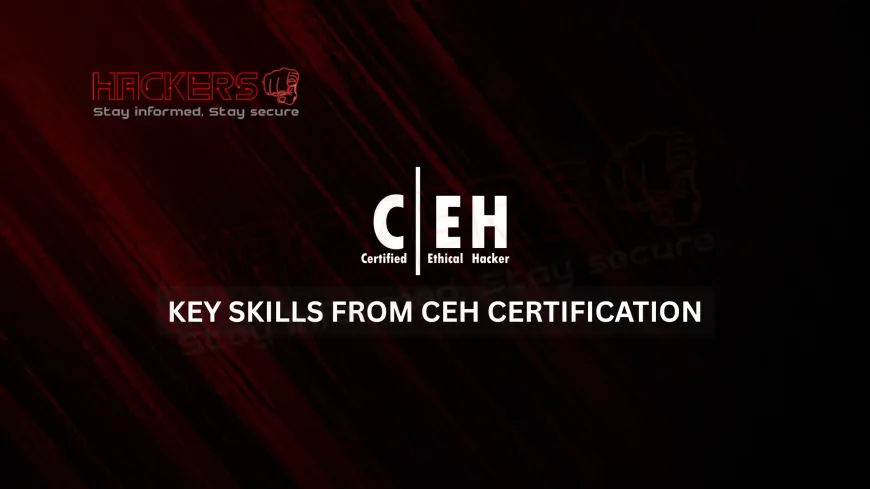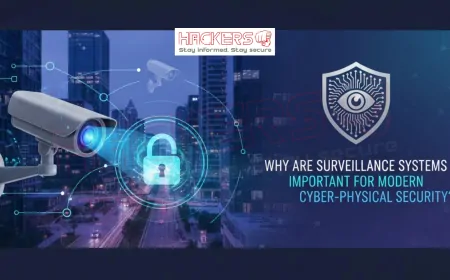What Key Skills Will You Gain from CEH Certification?
Picture this: You're sitting at your computer, delving into the digital shadows, uncovering hidden weaknesses in a system before cybercriminals can exploit them. Sounds like something out of a thriller movie, right? But this is the reality for ethical hackers, and the Certified Ethical Hacker (CEH) certification is your ticket to that world. In an era where data breaches cost companies billions and personal privacy is constantly under threat, learning to think like a hacker but for the greater good has never been more crucial. As someone who's followed the cybersecurity field for years, I've seen how CEH transforms beginners into confident professionals. Offered by the EC-Council, CEH v13 (the latest version as of 2025) isn't just about theory; it's packed with practical skills that employers crave. You'll learn to identify vulnerabilities, use cutting-edge tools, and even incorporate AI into your ethical hacking toolkit. Whether you're an IT newbie curious about security or a pro aiming to specialize, CEH equips you with skills that can lead to exciting careers and higher paychecks. In this comprehensive blog post, we'll explore the key skills you'll gain from CEH. We'll break down the 20 modules, explain jargon in simple terms, and show how these abilities apply in real life. By the end, you'll have a clear picture of why CEH is a worthwhile pursuit. Let's dive in and uncover the skills that could shape your future in cybersecurity.

Table of Contents
- What is CEH Certification?
- Core Skills Overview
- Detailed Skills from CEH Modules
- Practical Skills and Tools
- AI Integration in CEH
- How These Skills Benefit Your Career
- Key Skills Summary Table
- Beyond CEH: Building on Your Skills
- Conclusion
- FAQs
What is CEH Certification?
The Certified Ethical Hacker (CEH) certification is a globally recognized program that teaches you how to hack systems ethically—that is, with permission and to improve security. Created by the International Council of E-Commerce Consultants (EC-Council), it's been around since 2003 and has evolved to keep up with modern threats. The current version, CEH v13, launched in recent years, incorporates artificial intelligence (AI) to make learning more dynamic.
To earn CEH, you'll study 20 modules covering everything from basic concepts to advanced attacks. The exam is a 4-hour test with 125 questions, and there's an optional practical component for the CEH Master designation, where you solve real-world challenges. No prior experience is needed if you take official training, but a basic understanding of computers helps.
What sets CEH apart is its focus on hands-on skills. You'll use over 4,000 tools and techniques in 221 labs, simulating real cyberattacks. This practical approach means you're not just memorizing facts; you're gaining abilities that directly translate to jobs like penetration tester or security analyst. In 2025, with AI-driven threats on the rise, CEH's blend of traditional and modern skills is more relevant than ever.
Many people pursue CEH because it's accessible and rewarding. It's like learning to be a digital detective, spotting clues (vulnerabilities) and preventing crimes (breaches). If you're excited by technology and problem-solving, CEH could be your gateway to a thriving field.
Core Skills Overview
At its heart, CEH builds five core skill areas: reconnaissance, gaining access, maintaining access, covering tracks, and analysis/reporting. These align with the hacker methodology but emphasize ethics and legality.
Reconnaissance involves gathering information without detection, like a scout surveying terrain. Gaining access means exploiting weaknesses to enter systems. Maintaining access ensures you can return safely (for testing purposes). Covering tracks hides your activities, and analysis involves reporting findings to fix issues.
Beyond these, CEH hones analytical thinking, problem-solving, and attention to detail. You'll learn to use tools like Nmap for scanning or Metasploit for exploits, but more importantly, you'll develop a hacker mindset: curious, persistent, and creative. These skills aren't just technical; they include soft abilities like communicating risks clearly to non-tech folks.
In v13, AI adds a layer, teaching you to use machine learning for threat detection or automated attacks. Overall, CEH equips you to protect against the 550+ attack techniques it covers, making you a versatile defender in today's cyber landscape.
Detailed Skills from CEH Modules
CEH's 20 modules are the building blocks of your skills. Each one dives into a specific area, blending theory with practice. Let's explore them in groups for clarity, explaining what you'll learn and why it matters.
Foundational Modules (1-4)
Module 1: Introduction to Ethical Hacking. Here, you'll grasp basics like types of hackers (white hat vs. black hat) and cybersecurity laws. Skills gained: Understanding ethics, threat modeling, and security concepts. It's like learning the rules of the game before playing.
Module 2: Footprinting and Reconnaissance. This teaches passive info gathering, like searching public records or social media. Skills: Using tools like Google Dorks or WHOIS to map targets without alerting them. Real-world use: Helps in planning secure audits.
Module 3: Scanning Networks. You'll learn to actively probe systems for open ports and services. Skills: Mastering Nmap and other scanners to identify live hosts and vulnerabilities. It's essential for spotting entry points.
Module 4: Enumeration. This involves extracting details like user names or shares from systems. Skills: Using protocols like SNMP or LDAP to gather intel, honing your detective abilities.
These early modules build your foundation, teaching patience and thoroughness—key to avoiding mistakes in real scenarios.
Attack and Exploitation Modules (5-11)
Module 5: Vulnerability Analysis. Focus on finding and assessing weaknesses. Skills: Using scanners like Nessus and prioritizing risks based on severity. This skill saves time by focusing on critical issues.
Module 6: System Hacking. Learn to crack passwords, escalate privileges, and execute payloads. Skills: Techniques like brute-force attacks (trying many passwords) and rootkits, plus defenses against them.
Module 7: Malware Threats. Cover viruses, worms, and trojans. Skills: Analyzing malware behavior and using tools to detect/reverse-engineer them. Vital in an age of ransomware.
Module 8: Sniffing. This is about intercepting network traffic. Skills: Using Wireshark to capture and analyze packets, understanding encryption's role.
Module 9: Social Engineering. The human side tricking people via phishing or pretexting. Skills: Crafting convincing scams and educating against them. Often the weakest link is people, not tech.
Module 10: Denial-of-Service. Learn to overwhelm systems. Skills: Identifying DoS attacks and mitigating with tools like firewalls.
Module 11: Session Hijacking. Stealing active sessions. Skills: Using tools to spoof and protect against man-in-the-middle attacks.
These modules sharpen your offensive skills, but always with defensive countermeasures in mind.
Advanced and Specialized Modules (12-20)
Module 12: Evading IDS, Firewalls, and Honeypots. Skills: Techniques to bypass detection systems and set up decoys (honeypots).
Module 13: Hacking Web Servers. Focus on server vulnerabilities. Skills: Exploiting misconfigurations and securing servers like Apache.
Module 14: Hacking Web Applications. Cover app flaws. Skills: Testing for issues like XSS (cross-site scripting) using Burp Suite.
Module 15: SQL Injection. Deep dive into database attacks. Skills: Injecting code to manipulate queries and preventing with prepared statements.
Module 16: Hacking Wireless Networks. Wi-Fi security. Skills: Cracking WEP/WPA and securing networks.
Module 17: Hacking Mobile Platforms. Android/iOS vulnerabilities. Skills: App analysis and mobile forensics.
Module 18: IoT and OT Hacking. Internet of Things and Operational Technology. Skills: Securing smart devices and industrial systems.
Module 19: Cloud Computing. Cloud-specific threats. Skills: Auditing AWS/Azure and handling virtual environments.
Module 20: Cryptography. Encryption basics. Skills: Understanding algorithms like AES and managing keys.
By completing these, you'll have a well-rounded skill set, ready for diverse threats.
Practical Skills and Tools
CEH shines in practicality. With 221 labs, you'll simulate attacks in safe environments. Skills include setting up virtual machines, using Kali Linux (a hacker's OS), and tools like Metasploit for exploits or John the Ripper for password cracking.
You'll practice reporting, creating professional documents on findings. This builds communication skills, crucial for consulting roles. Hands-on work fosters troubleshooting—when something fails, you debug, mirroring real jobs.
CEH also teaches lab ethics: Always get permission, document everything. These habits prevent legal issues and build trust.
AI Integration in CEH
In v13, AI is a game-changer. You'll learn AI-driven tools for automated scanning or generating deepfakes. Skills: Using machine learning to predict vulnerabilities or detect anomalies. Tools like ChatGPT for reconnaissance or DeepExploit for attacks.
This prepares you for future threats, like AI-powered malware. It's forward-thinking, ensuring your skills stay relevant.
How These Skills Benefit Your Career
CEH skills open doors. Employers value practical knowledge 92% prefer CEH for hacking roles. You'll qualify for jobs like ethical hacker, where average salaries hit $112,000.
Skills like vulnerability assessment lead to analyst positions; social engineering to training roles. In industries like finance or healthcare, these abilities prevent costly breaches.
Personally, you'll gain confidence, problem-solving prowess, and a network through EC-Council communities. Many report promotions post-CEH.
Key Skills Summary Table
Here's a table summarizing major skill areas, their descriptions, and example tools.
| Skill Area | Description | Example Tools |
|---|---|---|
| Reconnaissance | Gathering target info passively | Google, WHOIS |
| Scanning & Enumeration | Probing for details and weaknesses | Nmap, NetBIOS |
| Exploitation | Gaining access via vulnerabilities | Metasploit, Burp Suite |
| Post-Exploitation | Maintaining access and covering tracks | Rootkits, Log cleaners |
| Specialized Hacking | Web, mobile, IoT, cloud | Aircrack-ng, Frida |
Beyond CEH: Building on Your Skills
CEH is a starting point. Renew every three years with credits. Pursue advanced certs like OSCP for deeper pen-testing or CISSP for management. Join bug bounty programs to apply skills and earn money.
Stay updated via blogs, conferences. These skills evolve, so lifelong learning is key.
Conclusion
CEH certification arms you with essential skills from reconnaissance to cryptography that empower you to safeguard digital assets. We've covered the modules, practical tools, AI integration, and career perks. In 2025's threat-filled world, these abilities are invaluable.
Whether starting out or advancing, CEH builds confidence and expertise. Invest in it, and you'll gain not just skills, but a mindset for success. Ready to hack ethically? Your journey starts now.
What is the main focus of CEH certification?
CEH focuses on teaching ethical hacking skills to identify and fix vulnerabilities in systems.
Do I need prior experience for CEH?
No, but basic IT knowledge helps; official training covers the fundamentals.
What tools will I learn in CEH?
Tools like Nmap, Metasploit, Wireshark, and AI-based ones for various hacking tasks.
How does CEH incorporate AI?
CEH v13 uses AI for threat simulation, automation, and advanced analysis.
What is footprinting in CEH?
Footprinting is gathering public information about a target without direct interaction.
Why learn social engineering?
It teaches how to defend against human manipulation, a common attack vector.
Is CEH practical or theoretical?
Mostly practical, with 221 labs simulating real attacks.
What jobs require CEH skills?
Roles like penetration tester, security analyst, and consultant.
How long to prepare for CEH?
2-3 months of study, depending on background.
Does CEH cover cloud security?
Yes, Module 19 focuses on cloud computing vulnerabilities.
What is SQL injection?
A technique to exploit database queries; CEH teaches detection and prevention.
Can CEH help with career advancement?
Yes, many get promotions; it's mapped to 45+ job roles.
Is CEH valid worldwide?
Yes, it's globally recognized and ANSI-accredited.
What is malware analysis in CEH?
Studying malicious software to understand and counter it.
Does CEH include wireless hacking?
Yes, Module 16 covers Wi-Fi security and attacks.
How to renew CEH?
Earn 120 credits over three years through training or activities.
What soft skills does CEH build?
Analytical thinking, communication, and ethical decision-making.
Is CEH worth it for beginners?
Definitely, it provides a structured entry into cybersecurity.
What is cryptography in CEH?
Learning encryption methods to secure data and break weak ones ethically.
Can I self-study for CEH?
Yes, if you have experience; otherwise, training is recommended.
What's Your Reaction?










































































